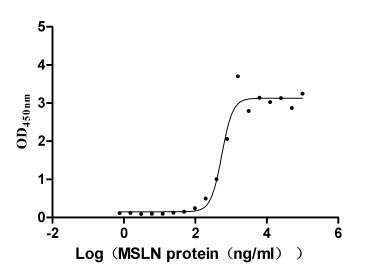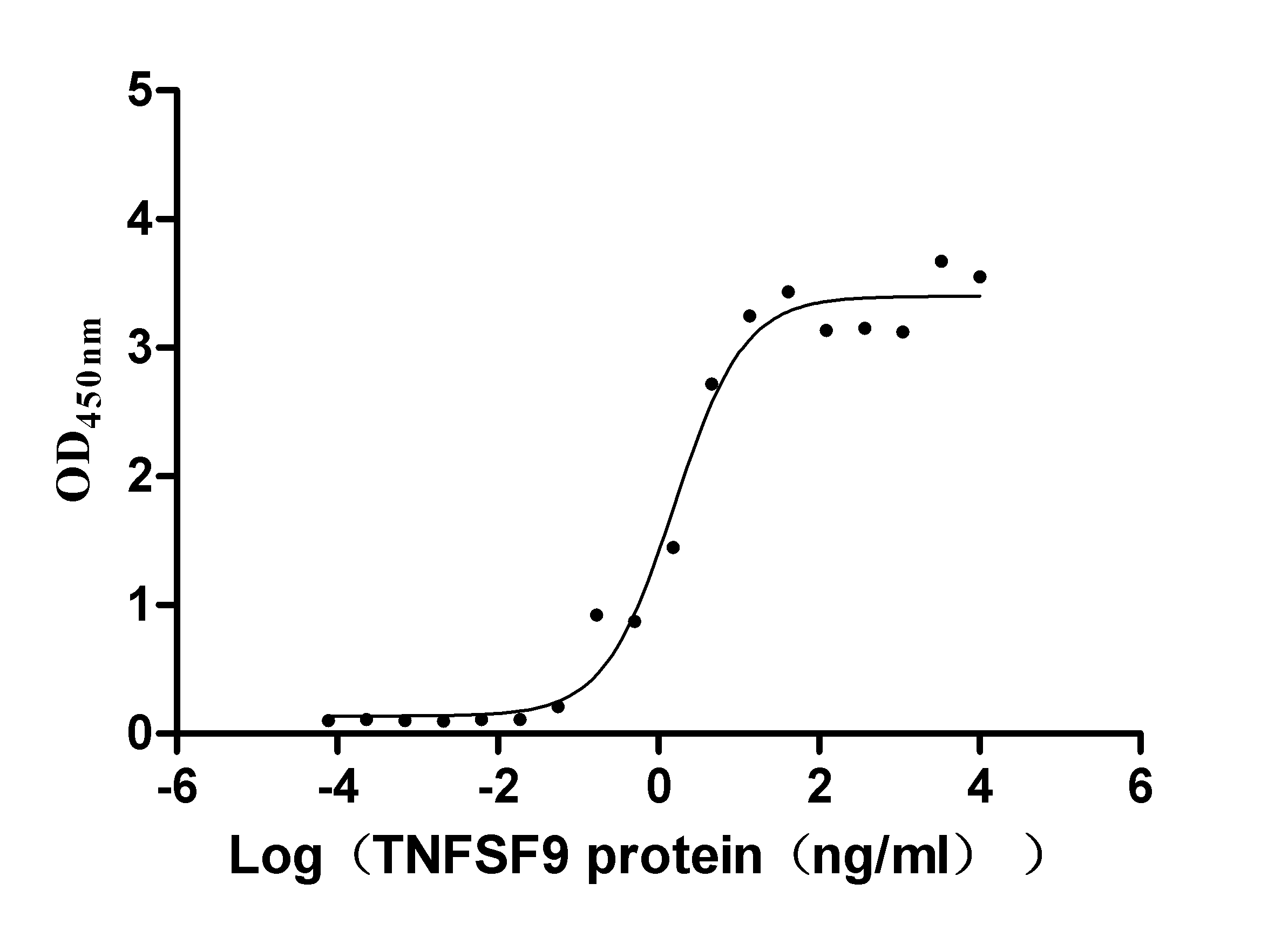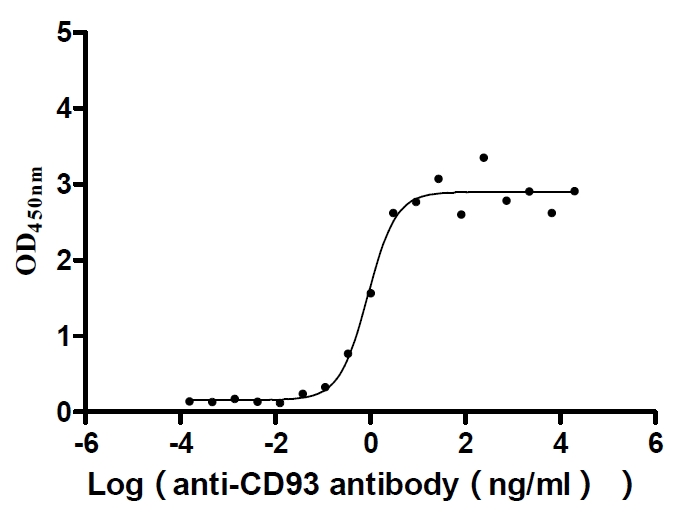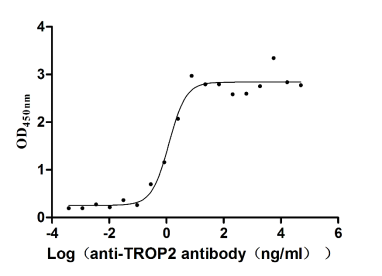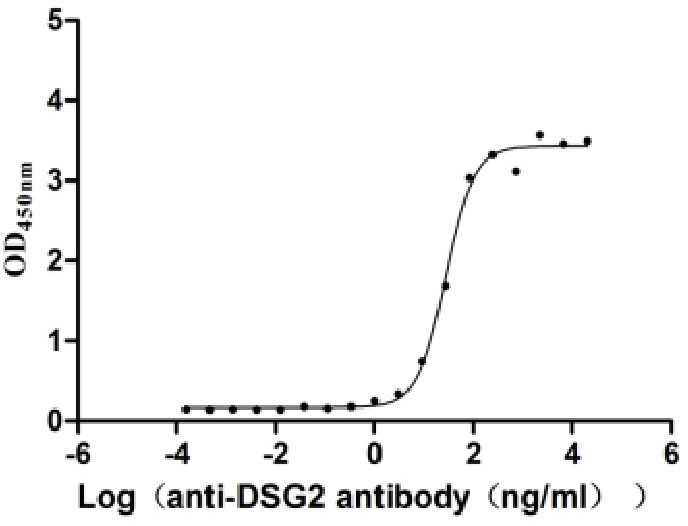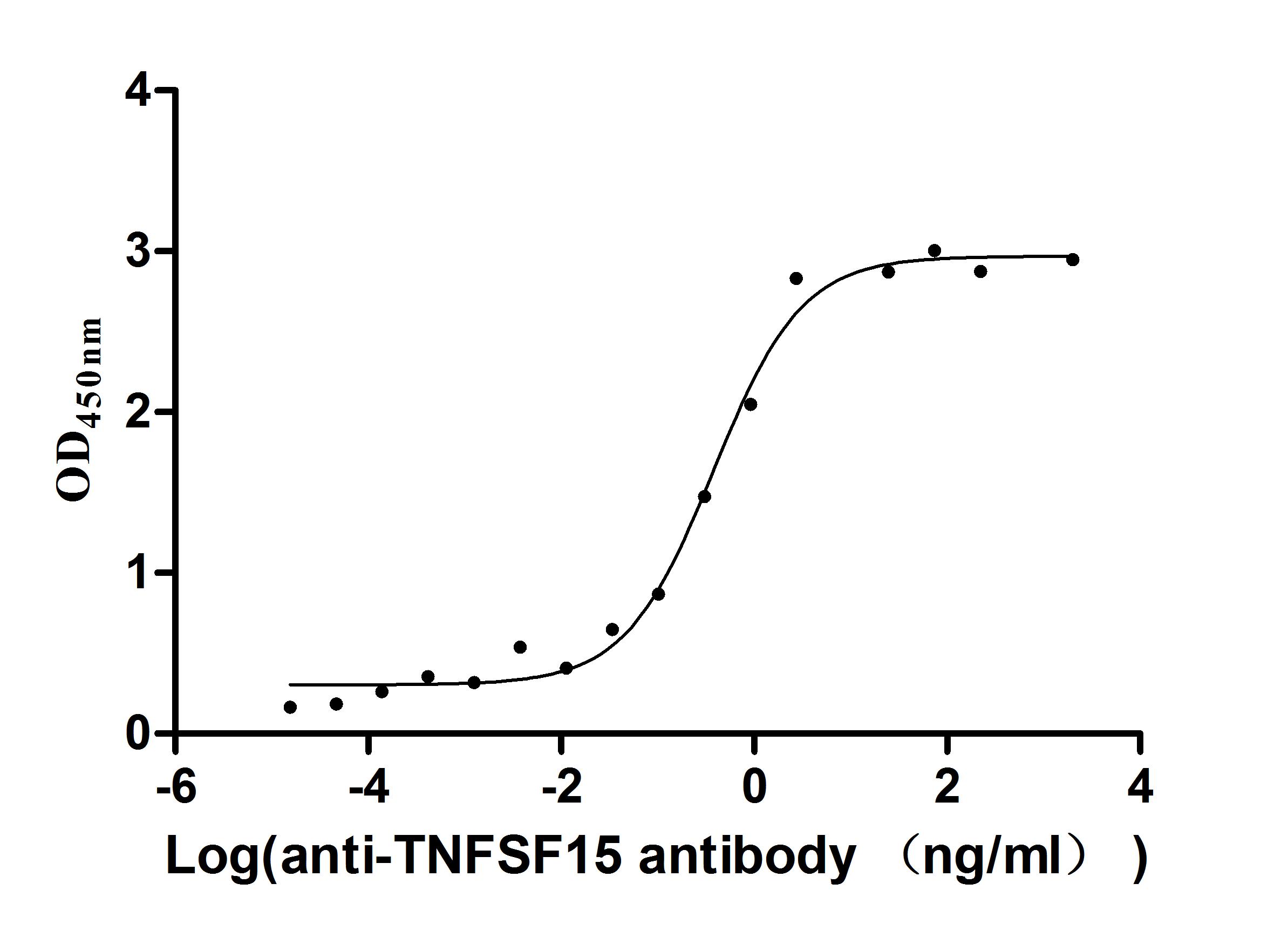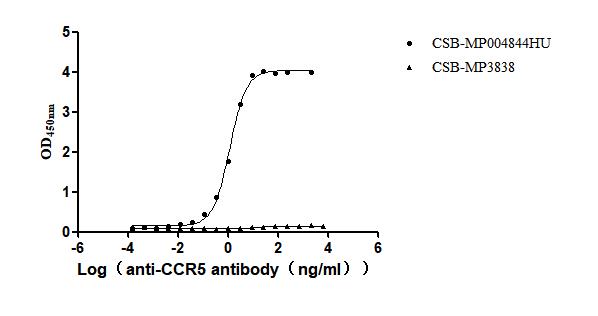Recombinant Human Ubiquitin carboxyl-terminal hydrolase 37 (USP37), partial
-
中文名称:人USP37重组蛋白
-
货号:CSB-YP801223HU
-
规格:
-
来源:Yeast
-
其他:
-
中文名称:人USP37重组蛋白
-
货号:CSB-EP801223HU
-
规格:
-
来源:E.coli
-
其他:
-
中文名称:人USP37重组蛋白
-
货号:CSB-EP801223HU-B
-
规格:
-
来源:E.coli
-
共轭:Avi-tag Biotinylated
E. coli biotin ligase (BirA) is highly specific in covalently attaching biotin to the 15 amino acid AviTag peptide. This recombinant protein was biotinylated in vivo by AviTag-BirA technology, which method is BriA catalyzes amide linkage between the biotin and the specific lysine of the AviTag.
-
其他:
-
中文名称:人USP37重组蛋白
-
货号:CSB-BP801223HU
-
规格:
-
来源:Baculovirus
-
其他:
-
中文名称:人USP37重组蛋白
-
货号:CSB-MP801223HU
-
规格:
-
来源:Mammalian cell
-
其他:
产品详情
-
纯度:>85% (SDS-PAGE)
-
基因名:USP37
-
Uniprot No.:
-
别名:Deubiquitinating enzyme 3; Deubiquitinating enzyme 37; EC 3.1.2.15; KIAA1594; MGC117261; OTTHUMP00000164146; tmp_locus_50; Ubiquitin carboxyl-terminal hydrolase 37; Ubiquitin specific peptidase 37; Ubiquitin specific processing protease 37; Ubiquitin specific protease 37; Ubiquitin thioesterase 37; Ubiquitin thiolesterase 37; Ubiquitin-specific-processing protease 37; UBP37_HUMAN; USP37
-
种属:Homo sapiens (Human)
-
蛋白长度:Partial
-
蛋白标签:Tag type will be determined during the manufacturing process.
The tag type will be determined during production process. If you have specified tag type, please tell us and we will develop the specified tag preferentially. -
产品提供形式:Lyophilized powder
Note: We will preferentially ship the format that we have in stock, however, if you have any special requirement for the format, please remark your requirement when placing the order, we will prepare according to your demand. -
复溶:We recommend that this vial be briefly centrifuged prior to opening to bring the contents to the bottom. Please reconstitute protein in deionized sterile water to a concentration of 0.1-1.0 mg/mL.We recommend to add 5-50% of glycerol (final concentration) and aliquot for long-term storage at -20℃/-80℃. Our default final concentration of glycerol is 50%. Customers could use it as reference.
-
储存条件:Store at -20°C/-80°C upon receipt, aliquoting is necessary for mutiple use. Avoid repeated freeze-thaw cycles.
-
保质期:The shelf life is related to many factors, storage state, buffer ingredients, storage temperature and the stability of the protein itself.
Generally, the shelf life of liquid form is 6 months at -20°C/-80°C. The shelf life of lyophilized form is 12 months at -20°C/-80°C. -
货期:Delivery time may differ from different purchasing way or location, please kindly consult your local distributors for specific delivery time.Note: All of our proteins are default shipped with normal blue ice packs, if you request to ship with dry ice, please communicate with us in advance and extra fees will be charged.
-
注意事项:Repeated freezing and thawing is not recommended. Store working aliquots at 4°C for up to one week.
-
Datasheet :Please contact us to get it.
相关产品
靶点详情
-
功能:Deubiquitinase that antagonizes the anaphase-promoting complex (APC/C) during G1/S transition by mediating deubiquitination of cyclin-A (CCNA1 and CCNA2), thereby promoting S phase entry. Specifically mediates deubiquitination of 'Lys-11'-linked polyubiquitin chains, a specific ubiquitin-linkage type mediated by the APC/C complex. Also mediates deubiquitination of 'Lys-48'-linked polyubiquitin chains in vitro. Phosphorylation at Ser-628 during G1/S phase maximizes the deubiquitinase activity, leading to prevent degradation of cyclin-A (CCNA1 and CCNA2). Plays an important role in the regulation of DNA replication by stabilizing the licensing factor CDT1.
-
基因功能参考文献:
- these findings reveal a role for REST-associated G9a and histone H3K9 methylation in the repression of USP37 expression in medulloblastoma. Reactivation of USP37 by G9a inhibition has the potential for therapeutic applications in REST-expressing medulloblastomas PMID: 28483947
- USP37 interacts with Cdt1 and is able to de-ubiquitinate Cdt1 in vivo and, USP37 is able to regulate the loading of MCM complexes onto the chromatin. PMID: 27296872
- USP37 associates with cohesin and contributes to sister chromatid resolution. Cohesion defects are rescued by expression of an RNAi-resistant USP37, but not the catalytically impaired USP37(C350A) mutant. PMID: 26299517
- USP37 is significantly upregulated in human lung cancer tissues, where its expression is positively correlated with c-Myc protein expression. PMID: 25284584
- These results suggested that the UIMs in USP37 contribute to the full enzymatic activity, but not ubiquitin chain substrate specificity, of USP37 possibly by holding the ubiquitin chain substrate in the proximity of the catalytic core. PMID: 24324262
- our findings of USP37-modulating PLZF/RARA stability and cell transformation suggest that USP37 is a potential therapeutic target for PLZF/RARA-associated APL PMID: 23208507
- USP37 links REST to the control of p27 stability and cell proliferation. PMID: 22665064
- Skp1-Cul1-F-box ubiquitin ligase (SCF(betaTrCP))-mediated destruction of the ubiquitin-specific protease USP37 during G2-phase promotes mitotic entry PMID: 23027877
- The deubiquitinase USP37 binds CDH1 and removes degradative polyubiquitin from cyclin A. USP37 was induced by E2F factors in G1, peaked at G1/S, and was degraded in late mitosis. Phosphorylation of USP37 by CDK2 stimulated its full activity. PMID: 21596315
显示更多
收起更多
-
蛋白家族:Peptidase C19 family
-
组织特异性:Expressed in brain and prostate.
-
数据库链接:
Most popular with customers
-
Recombinant Human Mucin-16 (MUC16), partial (Active)
Express system: Mammalian cell
Species: Homo sapiens (Human)
-
Recombinant Human Tumor necrosis factor receptor superfamily member 9 (TNFRSF9), partial (Active)
Express system: Mammalian cell
Species: Homo sapiens (Human)
-
Recombinant Human Complement component C1q receptor (CD93), partial (Active)
Express system: Mammalian cell
Species: Homo sapiens (Human)
-
Recombinant Human Tumor-associated calcium signal transducer 2 (TACSTD2), partial (Active)
Express system: Mammalian cell
Species: Homo sapiens (Human)
-
Recombinant Human Desmoglein-2 (DSG2), partial (Active)
Express system: Mammalian cell
Species: Homo sapiens (Human)
-
Express system: Mammalian cell
Species: Homo sapiens (Human)
-
Recombinant Human C-C chemokine receptor type 5 (CCR5)-VLPs (Active)
Express system: Mammalian cell
Species: Homo sapiens (Human)


